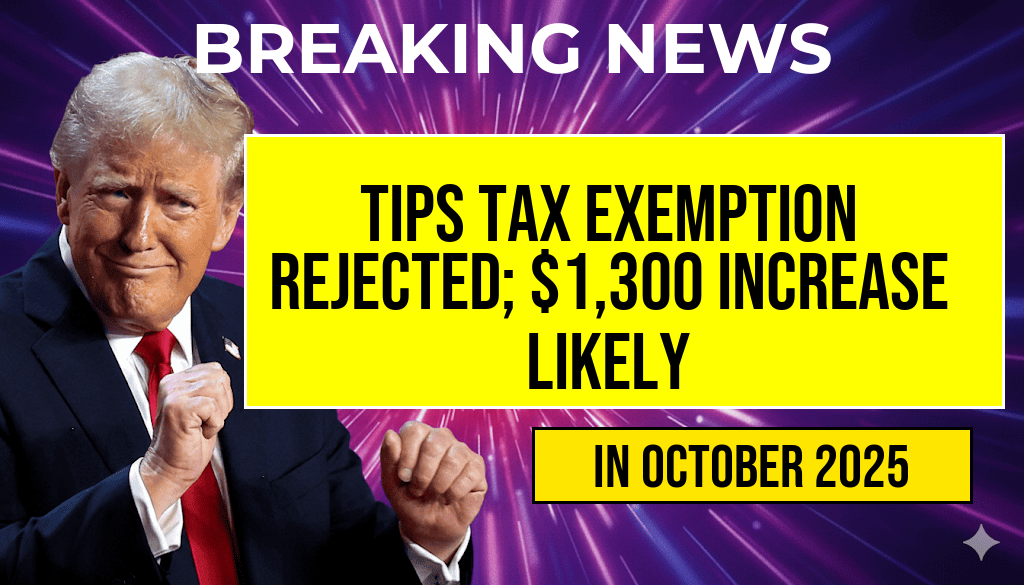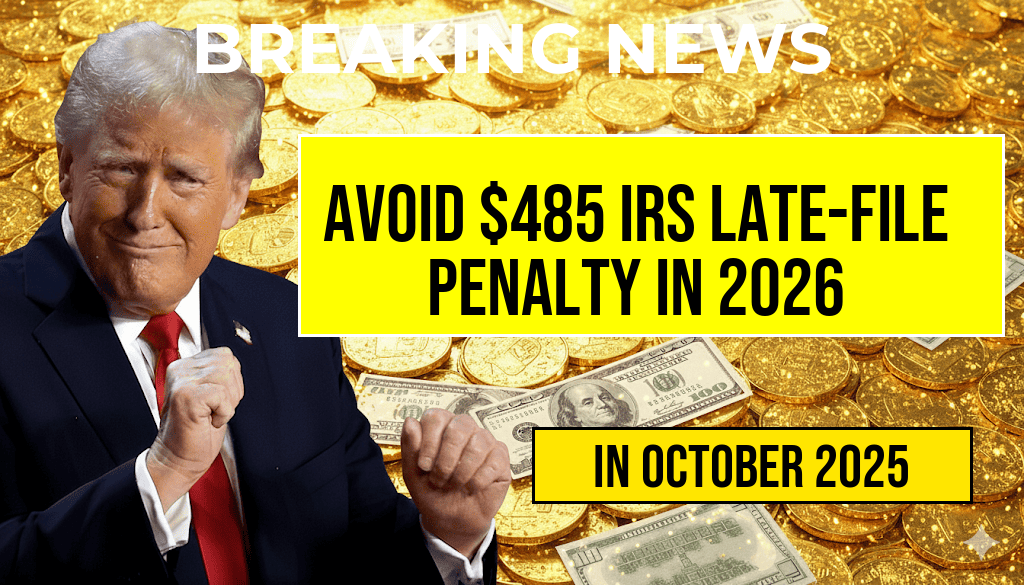IRS Penalties in 2026: Avoid $485 Late-File Fines with These Tips
The Internal Revenue Service (IRS) is set to enforce stricter penalties for late tax filings starting in 2026, with fines reaching up to $485 per violation. Taxpayers who miss the April deadline without filing an extension could face these significant charges, emphasizing the importance of timely submissions. With the IRS continually refining its enforcement strategies, understanding the nuances of late filing penalties is crucial for avoiding costly fines and potential audits. This article breaks down the upcoming penalty structure, offers practical tips for staying compliant, and outlines steps to minimize financial impact if delays occur.
Understanding the 2026 Penalty Structure
Beginning in the 2026 tax year, the IRS plans to implement more stringent measures to encourage prompt filing. The standard late-file penalty will increase to $485 per return, or 5% of the unpaid tax per month, whichever is greater. For taxpayers with significant delays, these penalties can accumulate rapidly, potentially exceeding the amount owed in taxes themselves.
| Penalty Type | Amount | Maximum Penalty |
|---|---|---|
| Late Filing Penalty | $485 per return | Up to 25% of unpaid taxes |
| Late Payment Penalty | 0.5% of unpaid taxes per month | Up to 25% of unpaid taxes |
It’s important to note that if a taxpayer files more than 60 days after the deadline, the minimum penalty can be the lesser of $435 or 100% of the unpaid tax. These measures are designed to motivate timely compliance but can be devastating for those who miss the deadline without an extension.
Key Strategies to Avoid Penalties
Avoiding hefty fines requires proactive planning and a clear understanding of IRS rules. Here are critical steps taxpayers can take:
1. File on Time or Request an Extension
- Taxpayers who anticipate delays should file for an extension before the April deadline. Extensions grant an additional six months to submit the return, typically moving the deadline to October 15.
- While an extension provides extra time to file, it does not extend the time to pay any owed taxes. Paying as much as possible by the original deadline reduces penalty accruals.
2. Use Electronic Filing and Payment Options
- Electronic filing (e-file) is faster, more secure, and reduces the risk of errors that can lead to penalties.
- Pay taxes electronically through IRS Direct Pay or Electronic Funds Transfer (EFT) to ensure timely payments.
3. Keep Accurate and Complete Records
- Maintaining detailed documentation of income, deductions, and payments helps prevent mistakes that could lead to penalties.
- Using reputable tax software or consulting a professional can improve accuracy and compliance.
4. Act Quickly if You Miss the Deadline
- If you realize late filing is unavoidable, submit your return as soon as possible to minimize penalties.
- Consider submitting an amended return if you discover errors after filing.
Options for Penalty Relief and Minimizing Fines
For taxpayers who face penalties despite their best efforts, the IRS offers relief options:
First-Time Penalty Abatement
Eligible taxpayers may request a waiver of penalties if they have a clean compliance history over the past three years. This process involves filing Form 843 and demonstrating reasonable cause for late filing.
Reasonable Cause Relief
Penalties may be reduced or removed if delays were caused by circumstances beyond the taxpayer’s control, such as natural disasters, serious illness, or unexpected emergencies. Documentation supporting these claims is essential.
Installment Agreements
For those unable to pay their tax debt immediately, establishing a payment plan can help avoid additional penalties and interest accumulation. The IRS’s online tools facilitate quick setup of such arrangements.
Conclusion: Staying Ahead of IRS Penalties
As the IRS tightens its enforcement measures in 2026, taxpayers need to prioritize timely filing and payments. Leveraging extensions, electronic filing, and accurate record-keeping are straightforward yet effective ways to avoid the $485 late-file fine and related penalties. When delays are unavoidable, prompt action and seeking relief options can mitigate financial repercussions. Staying informed about IRS rules and utilizing available resources—such as the official IRS website (https://www.irs.gov)—can help taxpayers navigate compliance successfully and avoid unnecessary costs in the upcoming tax season.
Frequently Asked Questions
What are the IRS penalties for late filing in 2026?
The IRS imposes a $485 late-file fine for each tax return filed after the deadline in 2026. This penalty aims to encourage timely submissions and can accumulate if multiple returns are overdue.
How can I avoid the $485 late-file fine in 2026?
You can avoid the penalty by filing your tax return on time or requesting an extension before the deadline. Additionally, ensuring all information is accurate and complete can prevent delays that lead to penalties.
What should I do if I cannot file my tax return by the deadline?
If you cannot meet the deadline, file for an extension before the due date. This gives you additional time to submit your return without incurring the $485 late-file penalty, though any owed taxes are still due by the original deadline.
Are there any exceptions to the late-file penalties in 2026?
Yes, the IRS may waive penalties if you have reasonable cause for failing to file on time, such as serious illness or natural disasters. Providing proper documentation can help in requesting a penalty waiver.
Can I reduce or eliminate the late-file fine if I pay my taxes late?
While paying your taxes late may result in interest and additional penalties, filing on time can help you avoid the $485 late-file fine. If you have already incurred penalties, contacting the IRS for penalty abatement options may help reduce or eliminate charges.










